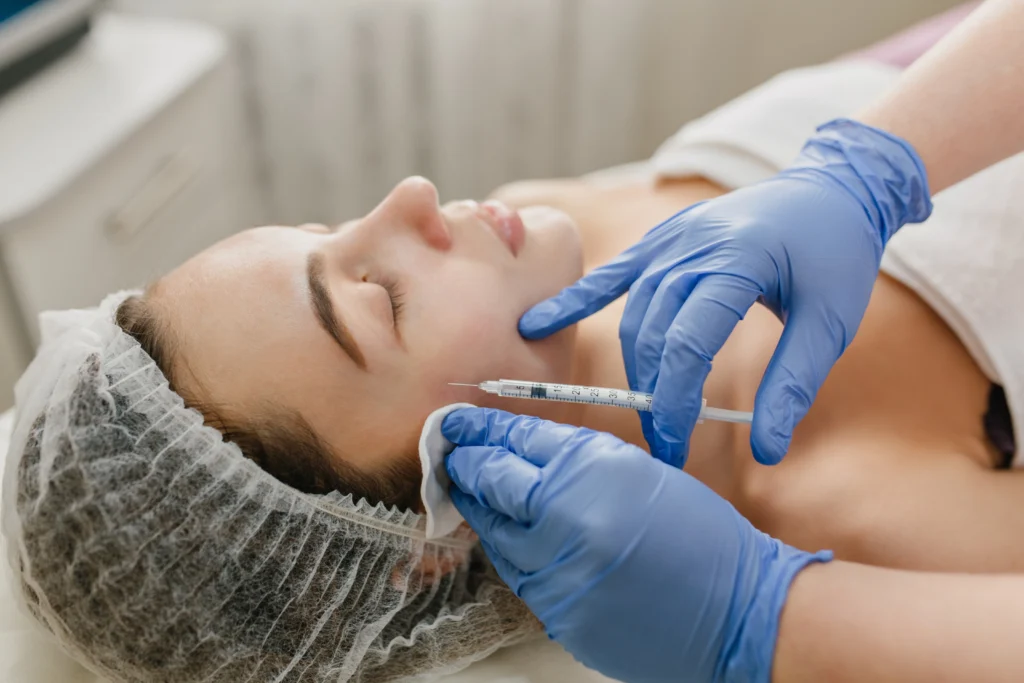
As summer draws near, the dreaded hay fever season arrives, causing many allergy sufferers to experience breathing fits, itchy eyes, and overall discomfort. While allergy medications, droppers, and nasal sprays are common treatments for hay fever, they may not be helpful for everyone. Hayfever injections provide hope for those who have not been able to recover from hay fever symptoms through alternative methods. Common allergens that can cause hay fever include pollen, dust mites, and pet dander.
The immune system responds to these allergens by generating histamines, which cause the typical symptoms of congestion, sneezing, runny nose, and watery, itchy eyes. For many people, hay fever is more than simply a seasonal annoyance; it may significantly affect their quality of life by causing trouble sleeping, being less productive, and generally feeling uncomfortable. Each year, hay fever affects millions of people.
How Do Hay Fever Injections Work?
Allergen immunotherapy, another name for hayfever injections, is a long-term therapeutic option for those whose extreme hay fever symptoms are not sufficiently managed by conventional drugs. These injections gradually lower or eliminate allergic reactions, reducing or eliminating hay fever symptoms by desensitizing the body’s immune system to the allergens that cause them.
- What are injections of steroids?
Steroid injections contain a kind of hormone known as corticosteroids, which are produced by the body on its own but administered to the patient. Because they have anti-inflammatory and anti-edema qualities, they are frequently used as a treatment option for hay fever and other inflammatory conditions. It is possible to provide rapid and focused relief by injecting the steroid directly into the area that is causing the pain.
- How Effective Are Steroid Injections for Hay Fever?
When a person with allergies has an overreaction of their immune system to an allergen, such as pollen, as is the case with hay fever, the nasal passages become inflamed. You can have nasal congestion, sneezing, and a runny nose when this occurs.
- Is it Safe to Inject Steroids?
The hay fever symptoms can be effectively and quickly treated with steroid injections. People who want immediate relief from symptoms may find them to be an ideal therapy option because they are safe and have little side effects. Contact your healthcare providers to determine if steroid injections might help your hay fever.
Steroid injections may have adverse effects, just like any other drug. These are usually moderate and temporary, though. Injection site soreness or discomfort is the most frequent adverse reaction. Nausea, dizziness, and headaches are further potential adverse effects. Before getting a steroid injection, you must discuss any adverse effects or worries with your doctor.
Benefits of Hayfever injections:
If all other therapy methods have failed, an injection for hay fever might alleviate your symptoms and allow you to resume your regular activities. Many people may have less severe symptoms and find that the hay fever period is more tolerable because of this, and the effects will stay throughout the season. Your doctor may prescribe a second dosage if the first one is not sufficient. With few exceptions, injecting more than twice within a season is not recommended.
- Convenience:
It is possible to have your hay fever injection and then return to your usual activities without having to deal with the discomfort associated with hay fever symptoms.
- Long-Term Outcomes:
One great thing about hay fever shots is that their effects last long. Traditional hay fever medicines need to be taken every day. Still, hay fever shots give you relief for at least three months, so you may enjoy summer and springtime without worrying about taking medicine all the time.
- Few Adverse Reactions:
Compared to oral corticosteroids, injections for hay fever often have fewer systemic adverse effects than the other alternatives. This is because the medication is administered directly to the area of the body that is being impacted.
- Rapid-Relief:
In contrast to oral drugs, which may take a while to start working, hayfever injections offer quick relief, sometimes within a few hours after treatment. Hay fever shots can provide long-lasting comfort and let you enjoy nature events without worrying about causing allergic responses since they target the underlying source of hay fever symptoms rather than merely covering them with medicine.
The risks involved in hayfever injections:
Remember that this medication is prescribed as an alternative when no other treatment works. This is because the impacts of the hayfever injections cannot be reversed after they have been given, unlike antihistamine pills. Side effects that might occur include:
- Sleeplessness
- Rashes on the skin
- Pain in the abdomen
- Weakness in muscles
- Higher blood pressure.
Preventing causes for allergies:
While you might be unable to avoid pollen altogether, you should limit your exposure to it. As an example,
- Be sure to check pollen predictions before leaving.
- Take a shower and change into dry clothing after spending time outside.
- During periods of high pollen concentration, keep your windows closed.
- Cover your hair and wear a mask if you head outside during pollen season.
- Schedule your outdoor activities so you are not exposed to high pollen levels.
Conclusion:
Many people look forward to warmer weather and more sunshine throughout the spring and summer. Unfortunately, this is the time of year when those with hay fever experience itchy eyes and nasal congestion. The symptoms of hay fever are so severe that they make normal activities impossible for 49% of the population. Although there are times when over-the-counter drugs work, their efficacy is not guaranteed. If other approaches are unsuccessful, hayfever injections could be helpful. Your symptoms may become less severe over time when your body becomes used to an allergy with injections.
